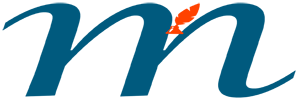1) Who has to take the Canadian Citizenship test?
Everyone between the ages of 18 and 54 has to write the test when called upon.
2) What if I am under 18, or over 54?
In this case, you do not need to write the test. You will go directly for a Citizenship Interview and the Oath Ceremony. Children under 14 are not required to take the oath but are welcome to.
3) What is the format of the citizenship test?
It is usually a written test, though it may be oral. You will be provided with a sheet of 20 multiple choice questions and a separate answer sheet. Also, to know more about the format and get some test tips: Visit.
4) What is the language used for the test?
The citizenship test is available in either of the two official Canadian languages, English or French. The candidate selects which of the two languages s/he would like to write the test in.
5) How many questions are there / and in what time I need to finish the test?
There will be 20 multiple choice and true or false questions. You have to answer them in 30 minutes.
6) Why is the answer sheet separate from the question paper?
The test is an OCR answer sheet. The assessment is computerized so that:
- a) There is no physical evaluation by a human hand (for objectivity) and
b) It is a faster process. The results are announced immediately in the exam hall.
7) How do I mark my answers?
There are two types of answer sheets involved. One requires circling the correct response, while the other needs blackening out the space under the correct letter (A, B, C, or D). You’ll be notified about the type beforehand.
8) How is the answer sheet assessed?
It is computerized by use of a response scanner.
9) What are the types of citizenship questions?
The question paper is set broadly over five categories:
- Rights and responsibilities of a Canadian citizen – (e.g. “Name three legal rights protected by the Canadian Charter of Rights and Freedoms”)
- Canadian history – (e.g. “Who were the Acadians?”)
- Canadian political systems – (e.g. “How is the Prime Minister elected?”)
- Canadian physical and political geography – (e.g. “How many provinces and territories are there in Canada?”)
- Questions related to applicants’ own province – (e.g. “Who is the premier of Alberta?”)
10) Is the citizenship test difficult?
The test is not very difficult. Majority of applicants pass the test. However, you need to study the Discover Canada booklet and our practice questions on this website. We have provided a complete practice questionnaire to help you pass the test.
15) How much should I score to pass the citizenship test?
To pass the exam you must get 15 correct answers out of the 20 (75%).
16) How much fee should I pay to apply for Canadian Citizenship?
Your fees depend on your age. Your fees may include:
- the processing fee
- the right of citizenship fee
If you’re submitting more than one application at the same time, you can pay all the fees together.
You have to pay your fees online.
- Citizenship (Adult): $630
- Stateless adult (18 or over) born to Canadian parent: $100
- Citizenship (Minor): $100
The instruction guide in your application package can help you understand which fees apply to you and show you how to pay them.
17) Can I pass the Citizenship Test?
Failing or passing the citizenship test depends on you. If you have the knowledge of either English or French and the knowledge of the country, you will pass. Keep in mind that the citizenship test is designed to measure two things:
- a) How well you can understand one of Canada’s official languages (English or French) and
b) Your knowledge about the country.
18) What happens if I fail the test?
If you fail the test, you have one more chance to write the exam. You’ll receive a fresh date for the second test, usually scheduled after 2-3 months. If you don’t pass the second time, you will receive a notice requiring you to come to an interview with a citizenship officer, which would add around another 3 months. The interview could last between 30-90 minutes on a case-to-case basis.
19) What happens after I pass the test?
If you pass the test, you’ll be invited for an “Oath Ceremony” at the same time you get the test results, or by email (if applicable) and/or by letter-post with the date, time and venue of your ceremony. The ceremony will usually take place within 3 months after your test. But it might take more time depending on the volume of applications. At the ceremony you will:
- Take the Oath of Citizenship and
- Get your Citizenship Certificate
Once you get the certificate, you can apply for a passport, usually after 2/3 business days.
This is the time-frame recommended by IRCC to update their online system.
20) What is the processing time after I apply?
Check your processing time here.
Get Canadian Citizenship Test Tips free.
